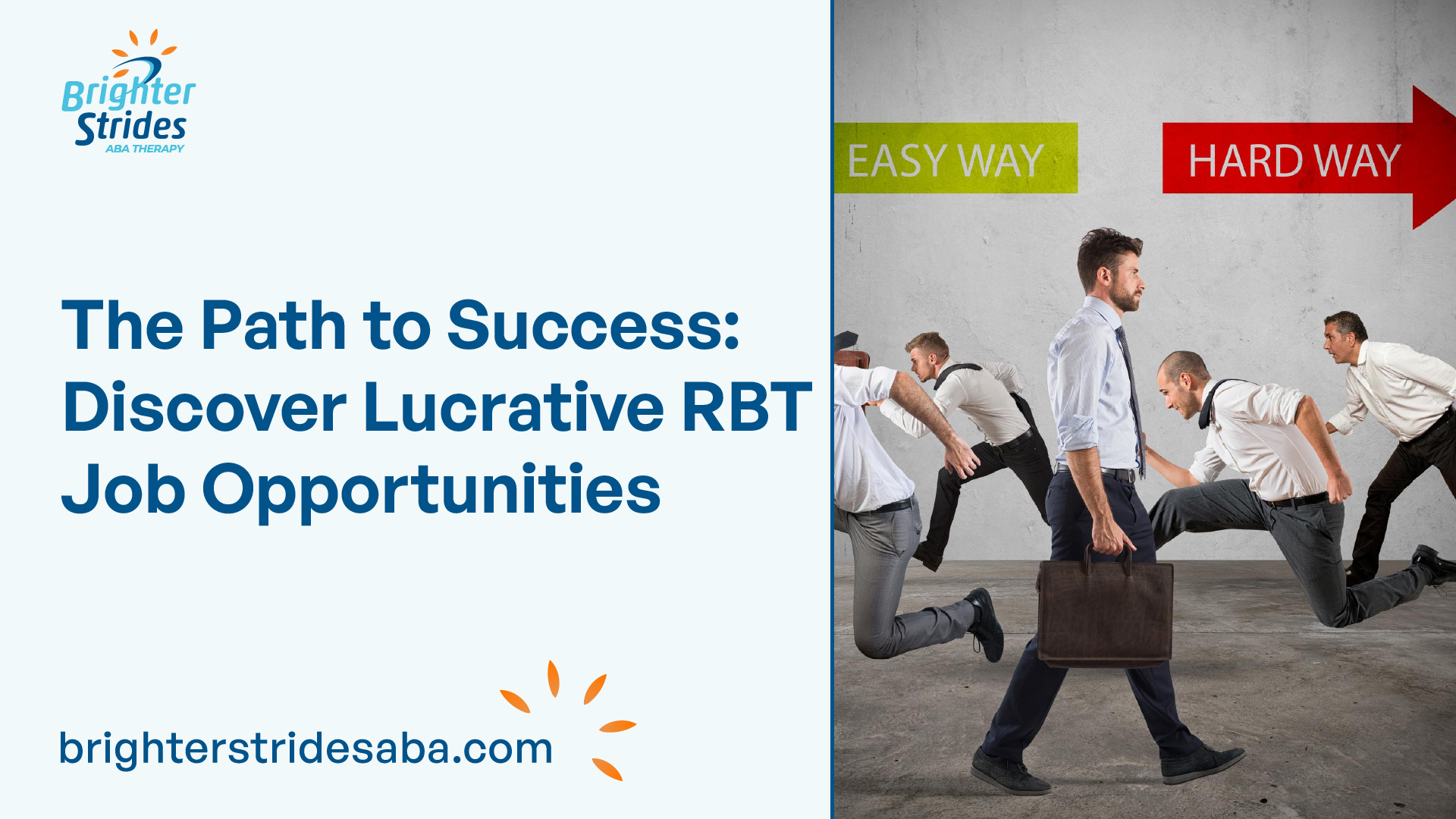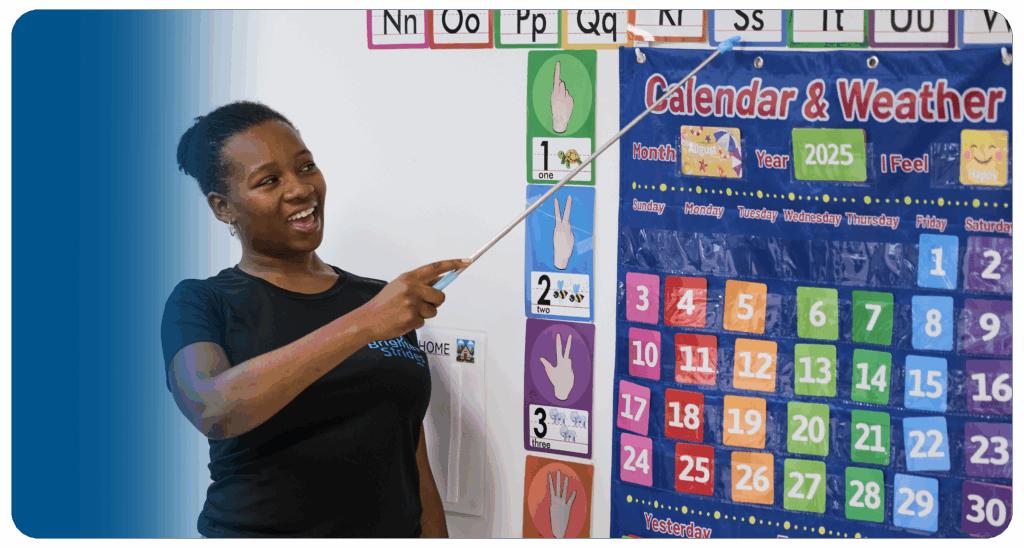Exploring RBT Job Opportunities
For those interested in pursuing a career as a Registered Behavior Technician (RBT), it’s important to understand the role and the skills required for this profession.

Role of a Registered Behavior Technician
A Registered Behavior Technician (RBT) plays a crucial role in providing direct and effective therapy to individuals with Autism Spectrum Disorder (ASD) and other developmental disabilities. Under the supervision of a Board Certified Behavior Analyst (BCBA), an RBT implements behavior intervention plans, works one-on-one with patients, monitors their behavior, collects data on their progress, and communicates with the patient’s family.
RBTs work in a variety of settings, including schools, hospitals, clinics, and clients’ homes. They collaborate with a team of professionals, including nurses, doctors, and other health professionals, to provide care to patients with behavioral conditions. The work of an RBT is focused on helping individuals develop essential life skills, manage challenging behaviors, and improve their overall quality of life.
Skills and Qualifications for RBTs
To excel in the role of an RBT, certain skills and qualifications are essential. These include empathy, compassion, discretion, and the ability to work well in a team. RBTs often work with individuals who may display challenging behaviors, so patience and the ability to manage these behaviors are crucial.
Effective Communication Skills are also important for an RBT, as they need to interact with patients, their families, and other members of the healthcare team. Problem-solving skills are valuable in identifying effective strategies to address behavioral challenges and implement behavior intervention plans.
To become an RBT, candidates must complete a training program, pass a competency assessment, and maintain ongoing supervision by a BCBA. This ensures that RBTs are equipped with the necessary knowledge and skills to provide quality care to individuals with behavioral and developmental challenges.
By embracing the role of an RBT and possessing the required skills and qualifications, individuals can embark on a fulfilling career path that allows them to make a positive impact on the lives of those they serve.
Settings for RBT Employment
Registered Behavior Technicians (RBTs) have the opportunity to work in various settings, each offering unique experiences and opportunities to make a difference in the lives of individuals with behavioral and developmental challenges. Some common settings where RBTs can find employment include schools and educational institutions, hospitals and medical facilities, and mental health facilities.
Schools and Educational Institutions
One of the primary settings for RBT employment is schools and educational institutions. RBTs play a vital role in supporting students with special needs and helping them develop essential skills. They work closely with teachers, school staff, and Board Certified Behavior Analysts (BCBAs) to implement behavior intervention plans and provide one-on-one therapy to students. RBTs in educational settings may work with individuals or in small groups, focusing on academic, social, and behavioral goals.
Hospitals and Medical Facilities
Hospitals and Medical Facilities also offer job opportunities for RBTs. In these settings, RBTs work as part of a larger healthcare team to provide behavior analysis services to patients with behavioral and developmental challenges. RBTs may collaborate with doctors, nurses, psychologists, and other healthcare professionals to develop and implement behavior plans, conduct assessments, and deliver therapy services. The role of RBTs in medical facilities is essential in supporting patients’ overall well-being and enhancing their quality of life.
Mental Health Facilities
Mental Health Facilities are another setting where RBTs can find fulfilling job opportunities. RBTs in mental health facilities work with individuals who have mental health disorders or behavioral issues. They collaborate with mental health professionals to implement behavior intervention plans, provide therapeutic interventions, and assist individuals in developing coping strategies. RBTs in these settings contribute to the overall treatment and support of individuals with behavioral and emotional challenges.
By exploring these various settings, RBTs can choose a career path that aligns with their interests and goals. Whether it’s working in schools, hospitals, or mental health facilities, RBTs have the opportunity to make a positive impact on the lives of individuals with special needs and contribute to their overall development and well-being.
Career Growth for RBTs
Registered Behavior Technicians (RBTs) have promising career growth opportunities within the field of Applied Behavior Analysis (ABA). As they gain experience and expertise, RBTs can advance to higher positions and pursue further education to expand their professional horizons.
Advancing to Higher Positions
Many RBTs choose to advance their careers by pursuing higher positions within the ABA field. One common pathway is through case management, where RBTs take on additional responsibilities in overseeing client cases and collaborating with other professionals. This role allows RBTs to enhance their leadership skills and take on a more comprehensive role in managing and coordinating behavioral interventions.
Another career advancement option for RBTs is to become a Board Certified Behavior Analyst (BCBA). BCBA certification requires a Bachelor’s or Master’s degree, and RBTs who decide to pursue further education can transition into this role. As BCBA professionals, they can take on more complex cases, develop behavior intervention plans, and supervise other RBTs.
Pursuing Higher Education
To expand their career opportunities, many RBTs choose to pursue higher education, such as a Bachelor’s or Master’s degree. This additional education equips them with a deeper understanding of behavioral principles and allows for specialization in specific areas of behavior analysis. With an advanced degree, RBTs can qualify for higher-level positions and have a wider range of opportunities available to them.
Pursuing higher education also provides RBTs with the option to become a BCBA. By obtaining a Master’s Degree in ABA or a related field, RBTs can meet the educational requirements for BCBA certification and expand their knowledge and expertise. This progression opens up doors to more advanced roles in behavior analysis and increases their earning potential.
It’s important for RBTs to continue their professional development and stay updated on the latest research and techniques in the field. Through ongoing training, workshops, and conferences, RBTs can enhance their skills and knowledge, making them more competitive and effective in their roles.
By advancing to higher positions and pursuing higher education, RBTs can achieve long-term success and contribute significantly to the field of ABA. These career growth opportunities allow RBTs to expand their skill set, take on more responsibilities, and make a positive impact on the lives of individuals with autism and other developmental disorders.
Job Outlook for RBTs
The Job Outlook for Registered Behavior Technicians (RBTs) is highly promising, with increasing demand and significant projected job growth. RBTs play a crucial role in the field of Applied Behavior Analysis (ABA) and are in high demand due to the rising number of individuals with behavioral disabilities, particularly those on the autism spectrum.
Increasing Demand for RBTs
The demand for well-trained RBTs is rapidly increasing, driven by factors such as the rising prevalence of autism spectrum disorder and the growing recognition of the effectiveness of ABA therapy. Over half of all RBTs work in the educational field, providing support in schools and educational institutions, while about a quarter are employed in medical positions, including hospitals and mental health facilities.
The demand for RBTs is expected to continue to rise in the coming years. According to Indeed, there is a projected job growth of 19% for RBTs from 2020 to 2030, indicating a strong and increasing demand for professionals in this field. This growth is primarily attributed to the increasing number of children and adults with behavioral disabilities and the improvement of care for individuals with autism.
Projected Job Growth and Salary Range
The Job Growth for RBTs is expected to be significant, with a projected growth rate of 31% from 2019 to 2029, which is much faster than the average for all occupations. According to ATCC Online, the number of RBT jobs is projected to increase by approximately 40,000 from 2020 to 2029.
In terms of salary, entry-level RBTs can expect an average annual salary of around $30,000. However, experienced RBTs with additional certifications and licenses, such as becoming a Board Certified Behavior Analyst (BCBA), can earn significantly higher salaries, reaching around $44,000 or more. The salary range for RBTs can vary depending on factors such as location, experience, and additional qualifications.
The job outlook for RBTs is highly promising, with increasing demand and significant job growth. As the field of ABA continues to expand and the need for behavioral therapy services grows, the demand for well-trained RBTs is expected to remain strong. Pursuing a career as an RBT can provide excellent job prospects and opportunities for professional growth and development.
The Future of RBT Careers
As the demand for Registered Behavior Technicians (RBTs) continues to rise, the future of RBT careers looks promising. RBTs play a crucial role in providing direct and effective therapy to individuals with Autism Spectrum Disorder (ASD) and other developmental disabilities. Let’s explore two key aspects that contribute to the future prospects of RBT careers: The Impact of Autism Spectrum Disorder and the Opportunities within the Applied Behavior Analysis (ABA) Field.
Impact of Autism Spectrum Disorder
The Prevalence of Autism Spectrum Disorder has been increasing over the years, leading to a higher demand for qualified professionals who can provide effective intervention and support.
RBTs are at the forefront of this effort, implementing behavior intervention plans under the supervision of a Board Certified Behavior Analyst (BCBA) to address the unique needs of individuals with ASD and other developmental disabilities.
By working closely with individuals on the autism spectrum, RBTs make a significant impact on their lives by helping them develop essential skills, improve social interactions, and reduce challenging behaviors. As the understanding of ASD grows and the importance of early intervention is recognized, the demand for RBTs is expected to continue rising.
Opportunities in Applied Behavior Analysis (ABA) Field
RBTs primarily work in the field of Applied Behavior Analysis, a discipline that focuses on understanding and modifying behavior through evidence-based techniques. With the increasing demand for ABA services, RBTs have a wide range of employment opportunities available to them.
RBTs can find employment in various settings, including schools, clinics, homes, and community-based programs. This diversity of work environments allows RBTs to gain experience and expertise in different contexts, making their skill set adaptable and valuable in the field of ABA.
As RBTs gain experience and expand their knowledge, they may also have opportunities for career advancement. Continuing education and training can lead to roles such as Lead RBT, Supervisor, or even pursuing further certification as a Board Certified Behavior Analyst (BCBA).
The job outlook for RBTs is highly promising, with a projected growth rate of 19% from 2020 to 2030, according to Indeed. This growth rate is significantly higher than the average for all occupations, indicating a strong demand for RBTs in the coming years.
In terms of salary, the average annual income for RBTs can vary based on factors such as experience, location, and work setting. However, it typically ranges from $35,000 to $55,000 per year, as reported by Applied Behavior Analysis Edu. This salary range reflects the value and importance of the work RBTs do in supporting individuals with developmental disabilities.
In conclusion, the future of RBT careers looks bright due to the increasing impact of Autism Spectrum Disorder and the growing opportunities within the Applied Behavior Analysis field. RBTs play a vital role in helping individuals with ASD reach their full potential, and the demand for their expertise is projected to continue growing in the coming years.
Conclusion
In conclusion, becoming a Registered Behavior Technician (RBT) can be a fulfilling and rewarding career choice. RBTs play an essential role in providing behavioral therapy services to individuals with developmental disabilities, particularly those on the autism spectrum. With the rising demand for ABA services and increasing job growth projections, the future prospects of RBT careers are highly promising.
Whether it’s working in schools, hospitals, or mental health facilities, RBTs have a wide range of employment opportunities available to them. By advancing their careers through case management or pursuing higher education to become a Board Certified Behavior Analyst (BCBA), RBTs can achieve long-term success and contribute significantly to the field of ABA.
Overall, RBTs have an important job that positively impacts individuals with special needs and enhances their quality of life. It’s a career path that offers growth opportunities, personal fulfillment, and the chance to make a meaningful impact on society.
Sources
- https://www.indeed.com/hire/job-description/rbt-registered-behavior-technician
- https://www.abatherapistjobs.com/blog/rbt-job-description
- https://www.appliedbehavioranalysisedu.org/registered-behavior-technician-jobs/
- https://www.crossrivertherapy.com/rbt/career-path
- https://www.yellowbusaba.com/post/the-best-rbt-career-path
- https://www.atcconline.com/blog/rbt-job-growth




